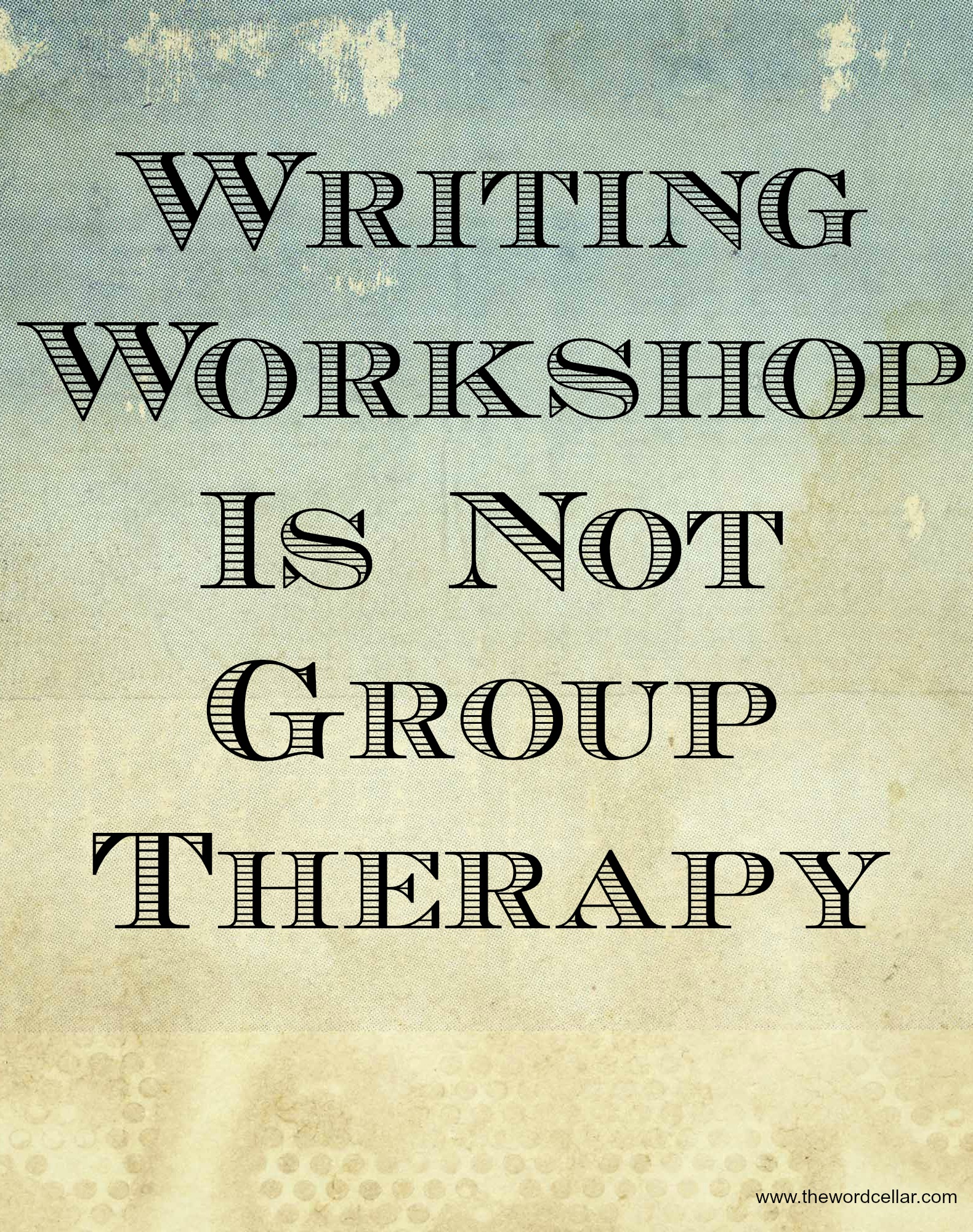Writing Workshop Is Not Group Therapy
 Tuesday, March 3, 2015 at 4:16PM
Tuesday, March 3, 2015 at 4:16PM 
I'm delighted to have a guest post on Brevity's Nonfiction Blog called "Writing Workshop Is Not Group Therapy."
Here's the an excerpt:
It's easy to read a memoir or essay and feel as though we know the author, even though all we really know is what the writer shared with us on the page. This false sense of familiarity is one thing when we read published work by authors we may never meet. But in a creative nonfiction workshop, this faux intimacy becomes a slippery slope.
We all know that writing workshop can be an emotionally charged environment to begin with. Add in stories of personal trauma, and you’ve got a veritable Slip'N Slide of intense moments and awkward interactions just waiting for you to lose your footing.
How can you keep your balance and avoid any more uncomfortable moments than necessary?
Make this your mantra:
Writing workshop is not group therapy.
(Say it with me.)
(And if it helps, you can sing it to the beat of MC Lars' "Hot Topic is Not Punk Rock.")
Don’t let a writing workshop turn into something it’s not meant to be. Here are some tips on how to stay grounded.
1) No problem solving—unless it relates to writing. Remember that you are in workshop to discuss the craft of writing and the world on the page. You aren’t there to coach a writer on how to heal from a traumatic childhood, a dance with addiction, or a spiritual crisis. You are not in workshop to help anyone slay their personal demons, unless those demons deal with writing better scenes, understanding narrative arc, or improving sentence rhythm.
Keep reading for all 7 tips on how to keep a writing workshop from spiralling into a group therapy session.
And as some readers have pointed out, these tips apply to any creative gathering in which the focus is meant to be on the art and craft of the work rather than the emotions and experiences of the creator.
(p.s. Do you know Brevity Magazine? It's an online literary journal that publishes short nonfiction. I highly recommend it if you're a writer or reader of flash essays, one-moment memoirs, or any short creative nonfiction (CNF). The Brevity blog is a great resource for all kinds of things related to CNF.)
 brevity,
brevity,  guest post,
guest post,  one-moment memoir,
one-moment memoir,  writing,
writing,  writing workshop
writing workshop 
